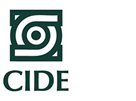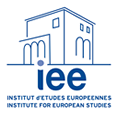
• Renato Galvão Flôres Junior
•
Leonardo Paz Neves
•
Jade C. Vasconcellos
•
Licia Vieira Castro
•
Mariana M. Trigo
•
Francine Thays Martin
Founded in 1944, is a world renowned center for quality education dedicated to promoting Brazil’s economic and social development, with eight schools, two research institutes, technical assistance projects and a publishing unit. FGV is ranked as the world’s best managed and among the top 10 think-tanks globally by the Global Go To Think Tank Ranking.
The FGV International Intelligence Unit is a content provider, within the purpose of opening markets and partnerships abroad for Brazil and FGV, and bringing smart solutions, ideas and investments from abroad to Brazil.
It produces knowledge on key international issues, trying to be vocal in all those considered vital to Brazilian interests. Comparisons, further intelligence in less known regions, and (intellectual) go-between endeavours among selected groups of partners, like the BRICS, fall also into our objectives.

• Nuno Severiano Teixeira
•
Daniel Marcos
•
Carmen Fonseca
•
Joana Castro
•
Mariana Esteves
•
Patricia Dahenhardt
•
Teresa Rodrigues
Universidade NOVA de Lisboa (NOVA) is one of the two public Universities located at Lisbon and it is the best ranked Portuguese university in QS Ranking 50 under 50 (36th). NOVA is committed to the construction of the European Higher Education Area and all its courses are organized under the principles of the Bologna Agreement. With more than 19,000 students, 1,100 academics and 500 non-academic staff, NOVA is an active member of UNICA and YERUN networks and has a consolidated experience within European programmes, such as Tempus, Erasmus and Erasmus Mundus, as well as it is involved in cooperation with North-American, African and Brazilian universities. These partnerships are expanding the initiatives of joint degrees and also of R&D projects and competitiveness.
The Portuguese Institute of International Relations – Universidade Nova de Lisboa (IPRI-NOVA) is an academic research institute founded in 2003 by the NOVA University. It is home to various researchers specializing in political science, international relations, contemporary history, comparative politics, transatlantic relations, and European integration. The IPRI-UNL is organized by different areas, which are included in three research groups – International Relations, Political Science and Prospective Studies. It is a R&D Unit evaluated by the Portuguese Foundation for Science and Technology (with Excelent).

• Pol Morillas Basedas
•
Anna Maria Ayuso Pozo
•
Eduard Soler i Lecha
•
Cristina Serrano Garcia
•
Eva Maria Garcia Chueca
•
Montserrat Tresserra Casas
•
Julia Palmias i Prohias
•
Marina Utges Serra
CIDOB is a leading Spanish independent, non-partisan centre devoted to international affairs. Its dynamic team of 35 professionals aims to offer political players information and ideas to contribute to shape policies to promote a safer, freer and more just world. CIDOB’s vision promotes good global governance based on democratic practices and plural dialogue. Currently ranked by annual University of Pennsylvania survey as best positioned Spanish think tank, 12th in Western Europe, number 4 out of 113 ‘’think Tanks to Watch,” and 29th “Top Think Tanks Worldwide (Non-US) out of 145”.
CIDOB’s areas of geographical expertise include Europe, Latin America, the Mediterranean, the former Soviet space, Asia and the Middle East, with a particular focus on issues such as regionalism, international migration, intercultural dialogue, development and human security. On European issues, CIDOB focuses on the integration building process, the EU’s dialogue with neighbours and other regions, the impact of EU’s policies on citizens’ lives or promoting intercultural dialogue among EU citizens. CIDOB’s expertise in Latin American issues focuses mainly on regional integration and relations of Latin America with the EU and other regions.

• Mark Aspinwall
•
Gerardo Maldonado
•
Lorena Ruano Gómez
•
Elena Sánchez-Montijano
•
Daniela Stevens
•
Erika Ruiz Sandoval
•
Janette Corona
•
Ninfa Fuentes
CIDE is one of Mexico’s leading public research centers in the social sciences and home to Jean Monnet Chair, Lorena Ruano. It is based in Mexico City, with a campus in Aguascalientes. It is composed of six academic divisions hosting more than 120 full-time professors: Economics, History, Law, International Relations, Politics and Public Policy.
Its diverse faculty hold doctoral degrees from leading international universities, and publish in peer-reviewed journals as well as renowned academic presses. With active links to policy-makers, CIDE produces creative, methodologically rigorous interdisciplinary research designed both to advance scientific knowledge and improve decision-making and policy on major national and international issues. Externally funded projects and consultancy constitute an important part of the activities carried out at CIDE.

• Karim El Aynaoui
•
Rim Berahab
•
Youssef Tobi
•
Octaviano Canuto
•
Ait Ali Abdelaaziz
•
Mahmoud Arbouch
•
Imane Lahrich
•
Zineb Fathi
•
Zakaria Jouhari
•
Nisrine Alaloui
•
Ismail Benbrahim
The Policy Center for the New South (PCNS) is a Moroccan think tank aiming to contribute to the improvement of economic and social public policies that challenge Morocco and the rest of Africa as integral parts of the global South.The PCNS pleads for an open, accountable and enterprising “new South” that defines its own narratives and mental maps around the Mediterranean and South Atlantic basins, as part of a forward-looking relationship with the rest of the world. Through its analytical endeavours, the think tank aims to support the development of public policies in Africa and to give the floor to experts from the South. This stance is focused on dialogue and partnership, and aims to cultivate African expertise and excellence needed for the accurate analysis of African and global challenges and the suggestion of appropriate solutions.
As such, the PCNS brings together researchers, publishes their work and capitalizes on a network of renowned partners, representative of different regions of the world.

• Ramona Coman
•
Mario Telò
•
Frank Mattheis
•
Michela Arcarese
•
Olga Minampala
•
Isaline Bergamaschi
The Université Libre de Bruxelles (ULB) – and in particular its Institut d’études européennes (IEE) – are founded upon free-thinking principles, the ULB has sought to foster critical thought, advocate independent enquiry, and favor the rejection of dogma in all its forms. Over its 175 years of existence, the ULB has remained true to these original ideals and has consistently committed itself to the defence of democratic and humanist values. As one of Europe’s leading higher education institution (HEI), the ULB is the largest university in Brussels. It has 12 faculties that cover all the disciplines, closely combining academic input and research. As an education institution it organizes almost 40 undergraduate programs and 250 graduate programs (among them 15 Masters fully taught in English). It also partners 20 Doctoral schools, with almost 1,600 PhD in progress. As a research institution it has already been awarded Four scientific Nobel Prizes, one Fields Medal, three Wolf Prizes and two Marie Curie Prizes are further evidence of the University’s longstanding tradition of excellence.
The ULB is an active member of the European Research Area and is involved in almost 130 projects financed by the 7th European Framework Programs and near to 50 in the ongoing H2020 program.
International Intelligence Unit – FGV IIU
Av. Treze de Maio, 23 / Office 1115 – Centro, 20031-007.
Rio de Janeiro, RJ – Brazil
Phone: +55 (21) 3799-6224
http://iiu.fgv.br/